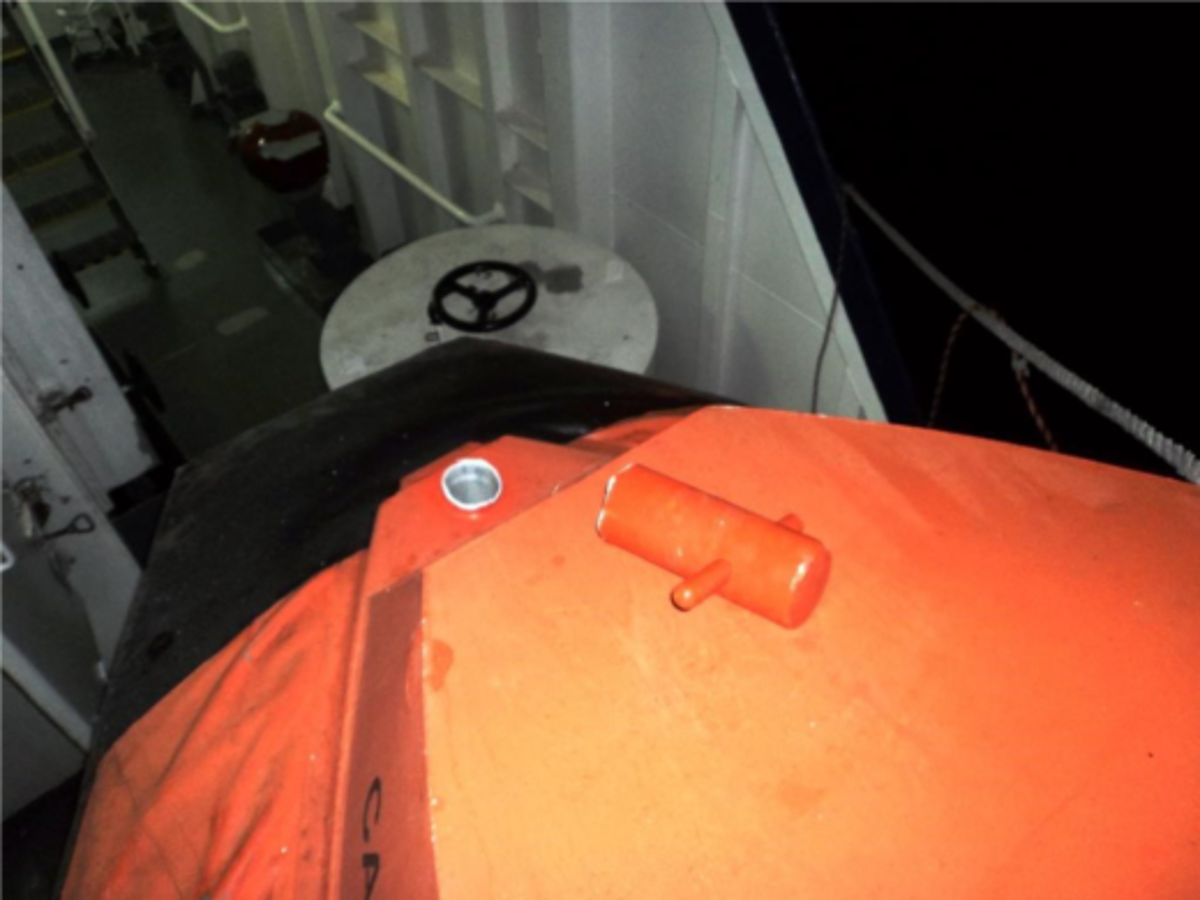Fast rescue craft damaged by inappropriate use
- Safety Flash
- Published on 31 January 2018
- Generated on 1 March 2026
- IMCA SF 03/18
- 1 minute read
Jump to:
A vessel was engaged in a joint offshore oil spill response exercise involving third parties.
What happened?
During the exercise, the client instructed the Master to use the Fast Rescue Craft (FRC) of the vessel as a towing boat for repositioning the oil booms deployed.

What went wrong? What were the causes?
The mooring bollard on the FRC broke under tension when the FRC started to tow the oil boom.
The FRC was not fit for this purpose and this was not considered while planning or risk assessing the task in preparation for the exercise. A suitable work boat should have been used for positioning of the oil boom.
Incidents involving small boats, whether work boats, Fast Rescue Craft (FRC), lifeboats or Crew Transfer Vehicles (CTV), should always to be treated as having high potential for serious injury or fatality.
Please visit the IMCA safety flash webpage where you can enter any phrase or word and search through the wording of over 1000 safety incidents. Try searching for boat (90 hits), lifeboat (34 hits) or fast rescue craft (10 hits).
Related Safety Flashes
-
IMCA SF 18/17
25 July 2017
-
IMCA Safety Flashes summarise key safety matters and incidents, allowing lessons to be more easily learnt for the benefit of the entire offshore industry.
The effectiveness of the IMCA Safety Flash system depends on the industry sharing information and so avoiding repeat incidents. Incidents are classified according to IOGP's Life Saving Rules.
All information is anonymised or sanitised, as appropriate, and warnings for graphic content included where possible.
IMCA makes every effort to ensure both the accuracy and reliability of the information shared, but is not be liable for any guidance and/or recommendation and/or statement herein contained.
The information contained in this document does not fulfil or replace any individual's or Member's legal, regulatory or other duties or obligations in respect of their operations. Individuals and Members remain solely responsible for the safe, lawful and proper conduct of their operations.
Share your safety incidents with IMCA online. Sign-up to receive Safety Flashes straight to your email.